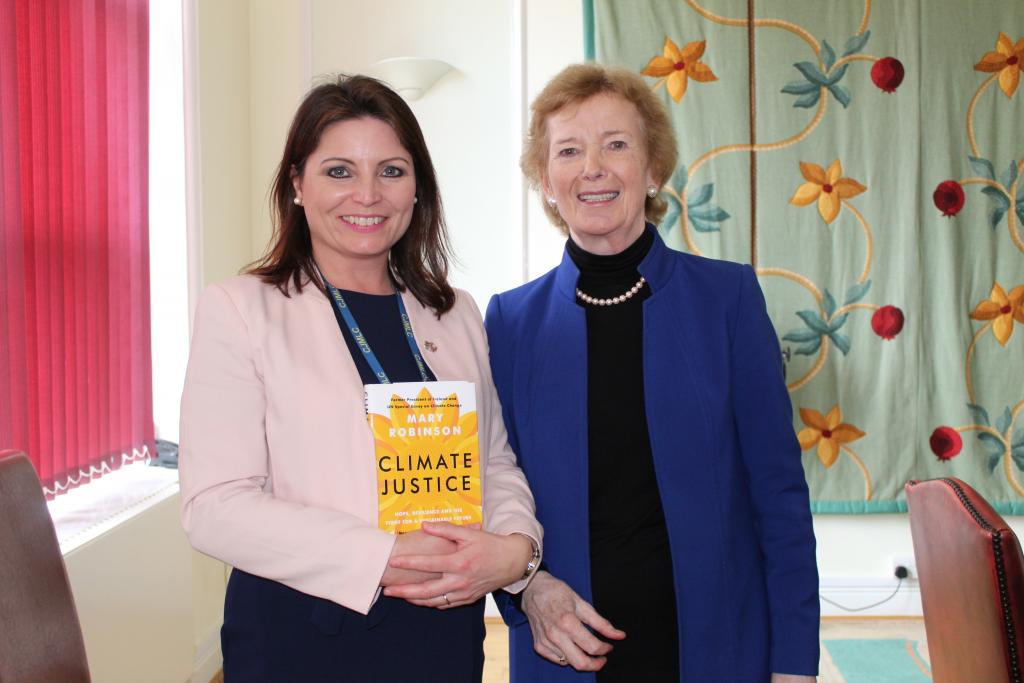The first woman President of Ireland and former UN High Commissioner for Human Rights Mary Robinson visited the Convent of Jesus and Mary in March to talk to pupils about the fight against climate change and its impact on human rights.
Mary, who was in London to collect a Kew International Medal for work on food security and climate justice, began by sharing the personal connection she has with the Convent having had two aunties who were Jesus and Mary nuns and once considering becoming a nun herself.
She shared some of the highlights of her career and reassuringly emphasised that she didn’t start off with a plan for where she is today, but being wedged between four brothers did spark an early interest in gender equality and human rights.
Mary also benefitted from parents who told her she had the same opportunities as her brothers, and, despite bookies’ odds at 100 to one when she stood for election, she defied expectations by becoming Ireland’s first female President in 1990.
In addition to her role as UN High Commissioner for Human Rights, and her appointment by Nelson Mandela as one of the Elders, an independent group of global leaders who work for human rights, she also established the Mary Robinson Climate Justice Foundation. She spoke about the connection between human rights and climate change, highlighting the fact that all the good work that is done to help poor countries is being undermined by the effects of climate change.
In answering students’ questions, she said: ‘One of the things we need to look at is how we run our economies. We basically run them on consume, consume, consume, produce consume. We can’t go on like that. We need to move towards a more sustainable life and livelihood.’
In the fight against climate change she advised pupils to ‘do something to make a difference that you wouldn’t otherwise do, in your families, lives and home. In my case it was becoming a pescatarian. Secondly once you have made your own personal commitment, you need to get angry with government, and that’s governments of every level, who are not doing what they should be doing. And the third thing, which I think is really important, and something young people can really help with, is to imagine the world we want to get to: a world where we don’t need to do some of the things we thought we had to do in modern life, a world of happier times and better relationships perhaps.’




